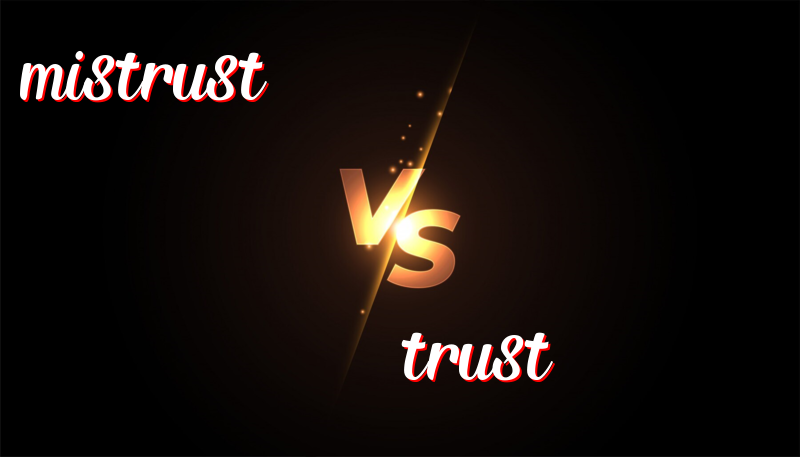Understanding Trust and Mistrust
Understanding the Difference between Mistrust and Trust
Words can sometimes be confusing, especially when they seem a bit alike. In this article, we will explore the words mistrust and trust.
History of the Words
Trust comes from the Old English word treowth, which means “faith or belief.” It has been used for a very long time to show that you believe someone or something is good or true.
Mistrust, on the other hand, is made by adding the prefix “mis-” to the word trust. The prefix “mis-” means “wrong” or “bad.” So, mistrust means having wrong or bad feelings about someone or something; not believing they are good or true.
How to Use the Words
Trust means you feel sure about someone or something. You believe they will do the right thing.
- I trust my friend to keep my secret.
- You can trust your teacher to help you learn.
- We trust the sun to rise every morning.
- The dog trusts its owner to give it food.
- I trust my sister to tell the truth.
Mistrust is when you do not feel sure about someone or something. You doubt or feel suspicion.
- I mistrust him because he lied before.
- She mistrusts strangers because she feels unsafe.
- The bird flies away because it mistrusts humans.
- We should not mistrust our friends without reason.
- The child mistrusts the dark because it feels scary.
Trick to Remember the Difference
Remember, “trust” is a positive word. It means you believe and feel safe. “Mistrust” is a negative word. It means feeling unsure or doubting. If you see “mis-” in front of a word, it often means something negative.
Summary
Trust is when you believe in someone or something and feel at ease. Mistrust is when you do not believe and feel uneasy or doubtful. Use “trust” for positive feelings and “mistrust” for negative or doubtful feelings.

Leave a Reply
You must be logged in to post a comment.